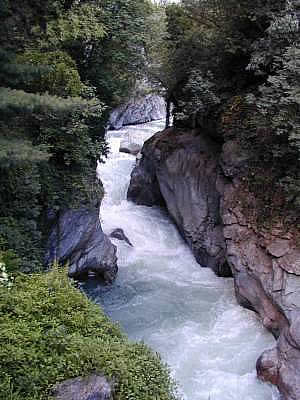WHAT IS A BLOG WHAT IS A BLOG WHAT IS A BLOG WHAT IS A BLOG WHAT IS A BLOG WHAT IS A BLOG WHAT IS A BLOG WHAT IS A BLOG WHAT IS A BLOG WHAT IS A BLOG WHAT IS A BLOG WHAT IS A BLOG WHAT IS A BLOG WHAT IS A BLOG WHAT IS A BLOG WHAT IS A BLOG |
 |
WHAT IS A BLOG WHAT IS A BLOG WHAT IS A BLOG WHAT IS A BLOG WHAT IS A BLOG WHAT IS A BLOG WHAT IS A BLOG WHAT IS A BLOG WHAT IS A BLOG WHAT IS A BLOG WHAT IS A BLOG WHAT IS A BLOG WHAT IS A BLOG WHAT IS A BLOG WHAT IS A BLOG WHAT IS A BLOG |
WHAT IS A BLOG
In 2004 Merriam Webster's Dictionary declared "blog" the word of the year.
From the founder:
From the San Francisco Chronicle: Time to get a life -- pioneer blogger Justin Hall bows out at 31; Sunday, February 20, 2005.
At the ripe old age of 30, Justin Hall was labeled "the founding father of personal blogging" by the New York Times Magazine…"What if intimacy happens in quiet moments?" he said. "I think the Web makes me not alone and I feed it my intimacies, and the Web is my constant connection to something larger than myself ... but what if something you do, something you practice like religion as a dialogue with the divine, drives people away from you?" Hall's dramatic statement fits the scale of his endeavor. He was one of the most committed advocates for the bonding powers of interactive, Web-based writings. But now, his sudden expression of doubt over the Internet's ability to foster intimacy marks a huge change in attitude from the one expressed in work over the past decade and shows that his philosophy may be evolving with the medium in which he works.
From The Economist, online edition, April 20, 2006: It’s the links, stupid
Today a new blog is created every second of every day, according to Technorati, a search engine for blogs, and the “blogosphere” is doubling in size every five months.
The word “blog” appears to date back to 1997, when one of the few practitioners at the time Jorn Barger, called his site a “weblog”. In 1999, another user, Peter Merholz, playfully broke the word into “we blog”, and somehow the new term—blog—stuck as both a verb and a noun. Technically, it means a web page to which its owner regularly adds new entries, or “posts”, which tend to be (but need not be) short and often contain hyperlinks to other blogs or websites. Besides text and hypertext, posts can also contain pictures (“photoblogs”) and video (“vlogs”). Each post is stored on its own distinct archive page, the so-called “permalink”, where it can always be found. On average, Technorati tracks some 50,000 new posts an hour..
1% of blogs are in German, according to Technorati, compared with 41% in Japanese, 28% in English and 14% in Chinese.
The article explains that a blogroll is a series of links recommended by the author. I understand that the blogging universe has found a noun to define itself: blogginess. The chart depicts a rising trend, from 0million in the middle of the year 2002 to 27million in the year 2006. An increase that at a sociological level requires our attention.
For these LiveJournal blogs, the average number of readers is seven, says Ms Trott. Such small audiences are common in participatory media. Indeed, they may conform to the biological norm, whereas mass-media audiences may have been an aberration. Robin Dunbar, an anthropologist at the University of Liverpool, has studied primates and discovered a surprisingly stable ratio between the relative size of the neocortex (thought to be responsible for the evolution fo intelligence) and the size of groups formed by particular species. For humans, Mr Dunbar calculated, the upper limit is about 150. Many clans, tribes, fan clubs, start-ups and other groupings remain well below this limit, as do most blog networks. |
... to the first bloggers or many founders:
Blogger.com was launched in August 1999 by Evan Williams, Paul Bausch, and Meg Hourihan, and recently bought by Google from the owner; Pyra Labs. The very first blog tool was programmed by Andrew Smales in July 1999. His idea was to create an easier way to reach people’s writings rather than “surfing blindly for their sites”. While working towards this idea he kept his readers updated on his progress and received valuable feedback. Together with Pitas.com he invented Diaryland.com, and since then they have been growing steadily. As the name clearly shows, with Diaryland people spoke of “diarists” and of “diary templates”. Blog is a further passage, not only in history, but in the same way of conceiving online space, of getting it organized, and of running it, thus of creating a wider audience that goes beyond the private sphere of a group of people interested in the particular daily life of its Author. |
Mark Brady for Chimera traces the origins of the blog in-between 1993 and 1999. He explains that the development was in a certain way progressive and spontaneous: from the first pages in HTML (hypertext mark-up language) uploaded to a web server, mainly personal homepages, the idea of interaction with other sites of common interest brought to links and comments that started a network of information and collaboration. There is also a passage from merely “web enthusiasts” as defined by Rebecca Blood to average people that can simply surf the net and type with a pc.
As the subtitle recites: “To the First Bloggers or many Founders” we are presented once again with a multiform reality, the more so now that the net has finally reached the many thanks to its capillary quality. In the past, something similar happened with the invention of the telephone, for example, credited simultaneously to Antonio Meucci, Johann Philipp Reis, Alexander Graham Bell, and Elisha Gray, among others. It is as if History was ready to accept this new tool for communication and extremely sensitive and talented individuals dislocated around the globe, “invented” it at the same time, an esoteric conclusion but logic does not offer any solutions. The same goes for the creation of blogs. In the inevitable confusion of claims and counterclaims, we have to accept the notion that with a wider propagation of the computer and of the web, people felt as if it was a urgent need to build their own private cells or houses or privileged meeting spaces inside the new ocean of information that would soon be part of our collective experience.
The New York Times opened a section dedicated to blogs; soon afterwards the Guardian Unlimited was quick in updating, just to mention two authoritative newspapers. The page dedicated to blogs on The New York Times has been “under development” since the beginning and invites the readers to “feel free” to send suggestions. Among the recent additions on November 14, 2006, one of the most interesting seems to me the Supreme Court Nomination Blog, followed by CyberJournalist.net. Up to this day, The New York Times selection is divided into several topics: Collections & Rankings; General; Technology & Media; Technology Toys & Cool Things; Politics & Government; Traditional Media; Business; New York; Food; Design; Miscellany.
Also The Guardian Unlimited divided the choice into subsections: Newsblog, Gamesblog, Guideblog, Onlineblog. The e-paper defines a weblog a “log” that is on the “web” and realized it was important to keep the readers updated on a “selected choice” carried out by experts.
There are photoblogs, blogging through mobile phones has been made possible, the blogosphere is expanding.
Safe surfing and regulations
Since we live in a world ruled by law and by regulations, it is important for all bloggers to be aware of their rights and of their liabilities. “Freedom of speech is the foundation of a functioning democracy” recites the Legal Guide for Bloggers, site supported by EFF (Electronic Frontier Foundation – Defending Freedom in the Digital World). EFF is a nonprofit group of attorneys who give free assistance, they are supported by members’ contributions. When they cannot provide a service, they direct you to an attorney. Many are the legal issues that can affect the owner of a blog as a publisher: infringement of copyright, for example, with the publication of other people’s material; defamation or libel. Privacy rights can protect people mentioned in a writing and published online. Legal issues might arise from political blogging or blogging on workplace; finally infringement of the law might take place when publishing obscene material or content.
I acknowledge Wikipedia under “blog” for the many useful links provided.
Introduction: Communication_***_Interview_***_ Blogs I visit _***_ What is a blog _***_ Webliography _***_When Blogs Will Be_***_ _***_ HOME _***_ |
